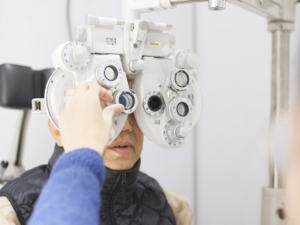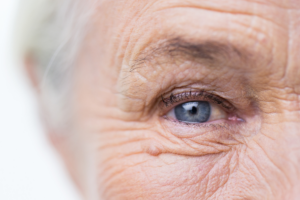Cataract Surgery Recovery: Fine-Tuning Vision After Surgery
Cataract surgery is a significant medical breakthrough, offering a substantial improvement in vision and overall quality of life. This procedure is specifically designed to address the challenges of cataracts, a common eye condition characterized by the clouding of the eye’s natural lens. It’s important to understand not only the immediate impact of the surgery but also the recovery process and time involved to fully appreciate its transformative potential.
Understanding Cataracts and Their Visual Impact
Before diving into the surgery and recovery process, it’s crucial to understand what cataracts are and how they affect vision. The eye’s lens, in its healthy state, is clear and focuses light onto the retina. Aging, however, can cause this lens to become cloudy, leading to cataracts. This cloudiness interferes with vision, making it appear foggy or blurry. While early cataracts might be manageable with stronger glasses, more light, or anti-glare sunglasses, these are temporary fixes. As cataracts progress, surgery often becomes the necessary and most effective solution.

Cataract Surgery: The Procedure Explained
Cataract surgery involves the removal of the cloudy lens and its replacement with an artificial lens, known as an intraocular lens (IOL). This procedure is typically done on an outpatient basis and is known for its high success rate and low risk of complications. The actual surgery is relatively quick, often taking less than an hour
The Recovery Process: What to Expect Post-Surgery
Understanding the recovery process is essential for patients undergoing cataract surgery. Immediately after the procedure, it’s common to experience blurry vision after cataract surgery as your eye adjusts to the removal of the cataract and the new lens. This blurriness usually improves within a few days.
1. First Few Hours After Cataract Surgery: It’s normal to feel itching or mild discomfort. Your doctor might prescribe eye drops to prevent infection and control eye pressure. You’ll also need someone to drive you home after the procedure.
2. First Few Days: Vision generally starts to improve within the first few days. You may be advised to wear an eye patch or protective shield, especially at night, to prevent rubbing or putting pressure on your eye.
3. First Few Weeks: During this period, it’s crucial to avoid strenuous activities, heavy lifting, and swimming to reduce the risk of infection. Follow-up appointments with your eye doctor are important to monitor your healing.
4. Long-Term Recovery: Complete healing can take up to eight weeks. Most people report a significant improvement in vision, but it’s important to note that individual experiences can vary.
Post-Surgery Vision Rehabilitation
While the improvement in vision post-surgery can be dramatic, it’s important to understand that your brain may take time to adjust to the new, clear vision. This adaptation process can affect how you perceive depth and color.
Fine-Tuning Vision After Cataract Surgery
To further improve vision after surgery, patients can engage in various rehabilitation exercises. These exercises help in adapting to the new lens and can improve overall visual acuity and contrast sensitivity.
Managing Post-Surgery Symptoms and Complications
Although cataract surgery is safe, awareness of potential postoperative symptoms is important. These can include mild eye discomfort, dry eyes, light sensitivity, or the presence of floaters. These symptoms usually diminish over time, but persistent issues should be discussed with an eye care professional.
The Role of Professional Care in Recovery
Regular follow-up appointments are crucial for monitoring the healing process and ensuring the best possible outcome. These check-ups allow for timely intervention if any complications arise and provide an opportunity for patients to discuss any concerns about their vision or recovery.
The RevitalVision Treatment for Post-Surgery Enhancement
Those who are still experiencing visual difficulties after cataract surgery may find the RevitalVision treatment beneficial. By using precise visual tasks and repetitive practice, this innovative therapy trains the brain to process visual information more efficiently. RevitalVision treatment is clinically and scientifically based, providing a structured approach to post-cataract surgery visual rehabilitation.
In Conclusion
Cataract surgery is a life-changing procedure for many, offering a path to regain clear and vibrant vision. It’s important for patients to have a comprehensive understanding of the surgery, the recovery process, and the time involved in healing. With appropriate care, rehabilitation exercises, and possibly supplementary treatments like RevitalVision, patients can experience a significant enhancement in their quality of life through improved vision.
